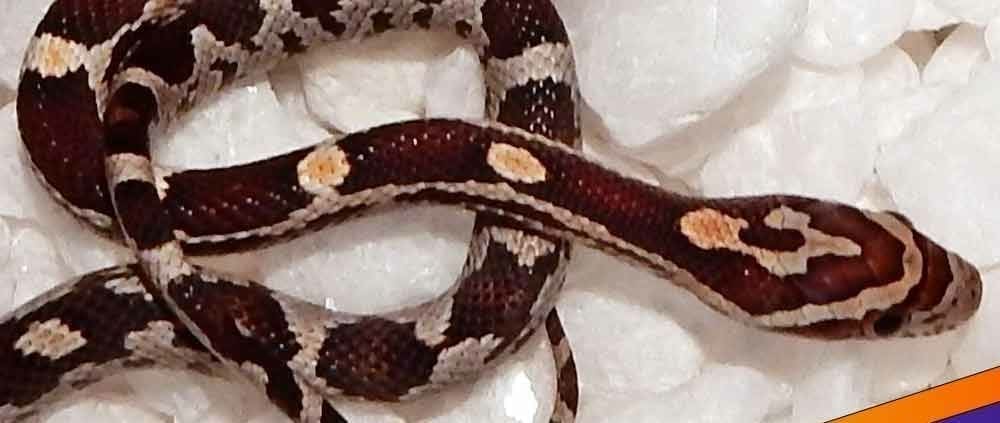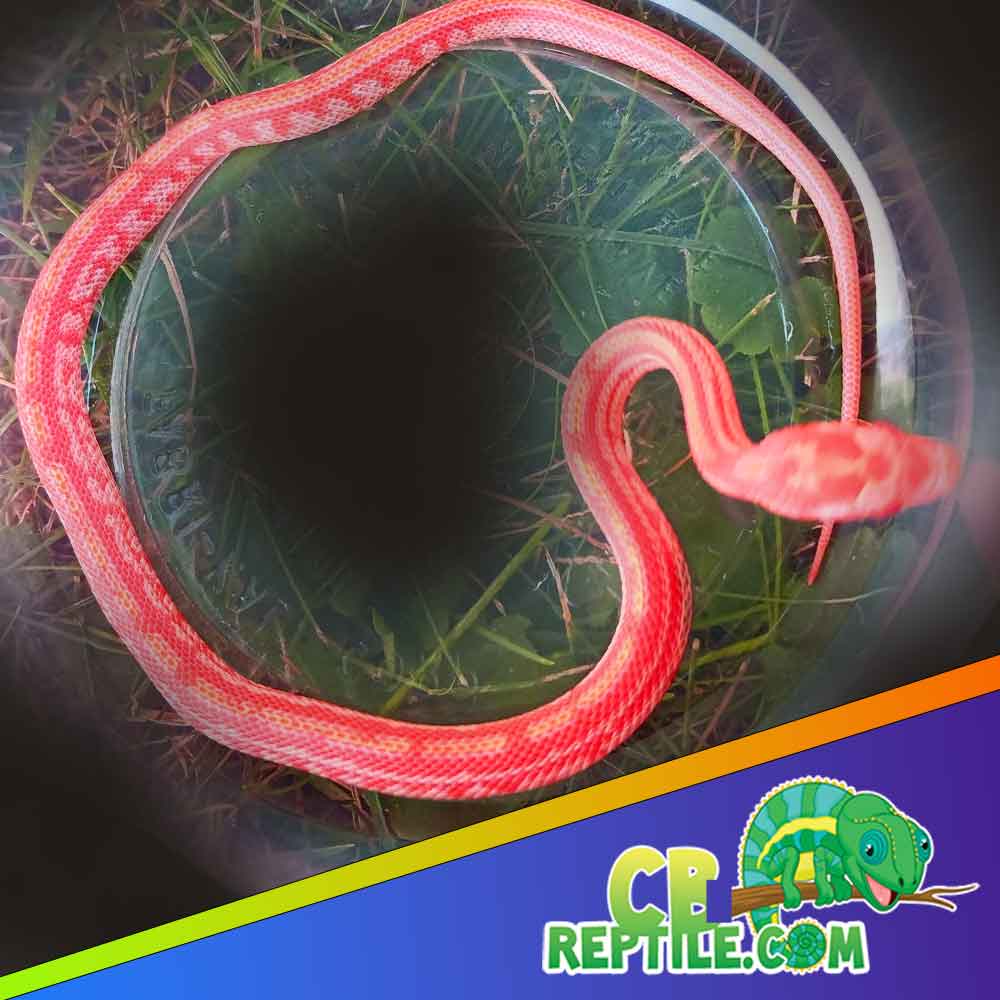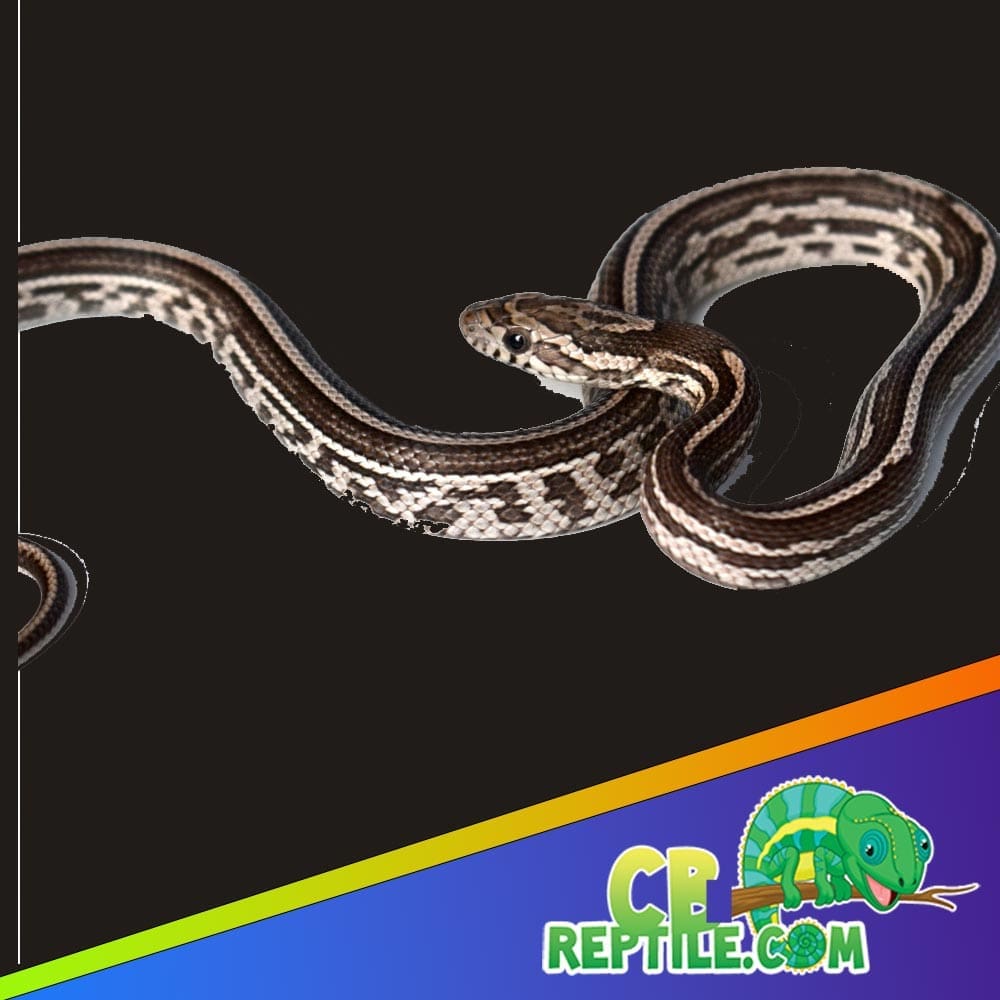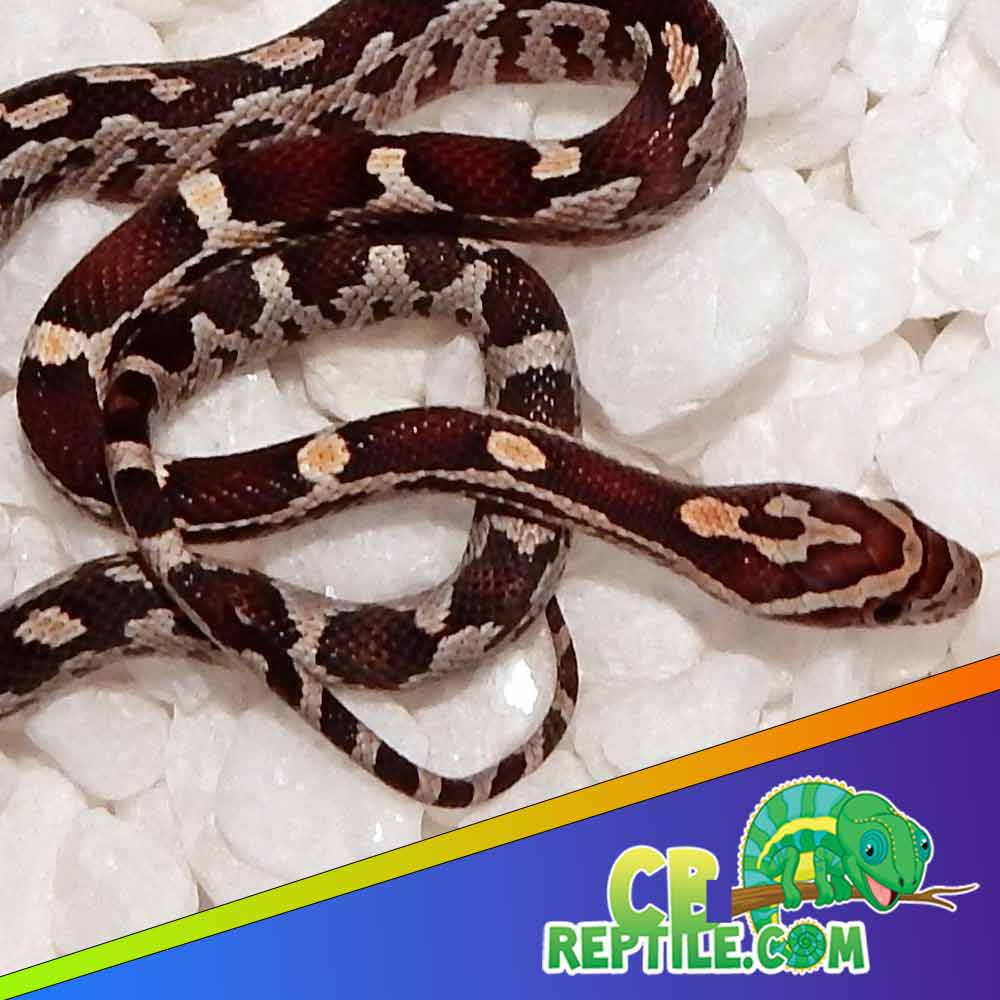
Male vs Female Corn Snakes: A Happy Keeper’s Guide
Healthy, captive-bred corn snakes make the best pets, and CBReptile.com has been trusted for over a decade as the best source in the USA. When you’re ready to welcome one, check out the available corn snakes for sale and begin your journey with a happy, thriving pet.

Male vs Female Corn Snakes: What’s the Difference?
Size
Male corn snakes typically stay a bit smaller and slimmer, usually reaching 3–4 feet in length. Females, on the other hand, often grow larger and bulkier, with some reaching 5 feet or more. This size difference is one of the most noticeable distinctions between the sexes.
Behavior
Both male and female corn snakes are generally docile and curious. Some keepers notice males being slightly more active, while females can be calmer. However, personality varies widely between individuals, and both sexes make excellent companions.
Breeding
If breeding is your goal, sexing your corn snake is important. Males are necessary for fertilization, while females lay the eggs. Females require extra nutrition and careful monitoring during egg production, which is a bigger responsibility compared to keeping males as pets.
Lifespan
With proper care, both male and female corn snakes can live 15–20 years in captivity. The main difference is that females may experience additional stress and energy demands if used for breeding, which can sometimes shorten their lifespan.
Habitat Setup: The Foundation for Both Sexes
Whether you choose a male or female, habitat setup is critical. Both need secure enclosures, correct heating, and enrichment to thrive.
- Enclosure size: Babies thrive in 10–20 gallon tanks. Adult males do well in 30–40 gallons, while larger females may need 40+ gallons.
- Substrate: Aspen shavings, paper bedding, or cypress mulch. Avoid cedar and pine.
- Hides: Provide at least two—one on the warm side, one on the cool side.
- Décor: Add climbing branches, cork bark, and foliage for enrichment.
- Water: A sturdy dish large enough for soaking.
Temperature & Heating

Corn snakes rely on external heat sources to regulate body temperature. Use thermostats and digital thermometers to ensure accuracy.
- Warm side: ~85°F surface temperature.
- Cool side: ~75°F.
- Night: ~70°F is acceptable.
Lighting & Humidity
Corn snakes do not require UVB, but a steady day/night light cycle helps them stay active and healthy. Humidity should stay around 40–50%, with slight increases during shedding. A humid hide filled with damp moss can help ensure perfect sheds for both males and females.
Nutrition: Feeding Male vs Female Corn Snakes

Diet is similar between sexes, though females used for breeding may need more frequent meals during the reproductive season.
- Babies: One pinkie mouse every 5–7 days.
- Juveniles: Fuzzies or hoppers once per week.
- Adults: Appropriately sized rodents every 7–10 days.
Always feed frozen/thawed prey, warmed to body temperature, and present with tongs. Captive-bred babies from CBReptile.com are already feeding reliably, making mealtime easy and stress-free.
Raising a Baby Corn Snake
Baby corn snakes are tiny but hardy when raised correctly. Here are the key steps:
- Start with a healthy baby: Choose a captive-bred corn snake from a trusted source.
- Secure small enclosure: 10–20 gallons with tight-fitting lid.
- Provide two hides: One warm, one cool.
- Maintain temps: Warm side ~85°F, cool side ~75°F.
- Feed pinkies: Every 5–7 days until the snake grows.
- Handle gently: Begin short sessions after a week of settling in, and avoid handling right after meals.
- Scale up: Upgrade prey and enclosure size as your baby grows.
Why Buy From a Real Corn Snake Breeder?
The key to success in raising a happy corn snake starts with sourcing from a professional. Pet stores often sell animals with unknown backgrounds, which can lead to stress, illness, or feeding issues. By choosing experienced cornsnake breeders like CBReptile.com, you ensure your snake is captive-bred, healthy, and already accustomed to human care.
CBReptile.com provides not just a snake, but also the guidance, support, and confidence that every new keeper needs.
Daily & Weekly Care Routine
- Daily: Check temps, humidity, and water. Spot-clean waste.
- Weekly: Feed, observe shedding progress, and gently handle.
- Monthly: Deep-clean the enclosure and rotate décor for enrichment.
Quick Male vs Female Comparison
| Trait | Male Corn Snake | Female Corn Snake |
|---|---|---|
| Size | Smaller, slimmer (3–4 ft) | Larger, bulkier (4–5+ ft) |
| Behavior | Often more active | Calm, steady |
| Breeding | Needed for fertilization | Lays eggs, requires extra nutrition |
| Lifespan | 15–20 years | 15–20 years (breeding may reduce lifespan) |
